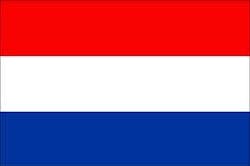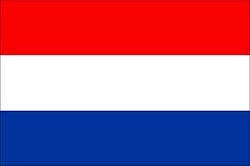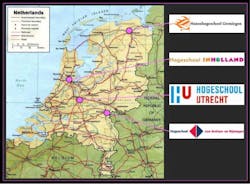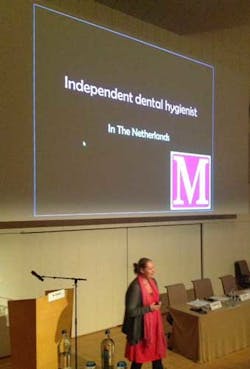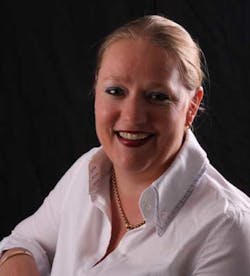Dental hygiene in the Netherlands
As presented to the Belgian Society of Periodontology
Netherlands
I was asked to discuss the education and licensure of dental hygienists in the Netherlands for the Belgian Society of Periodontology. The profile of dental care professionals in the Netherlands is as follows: there are 16.5 million inhabitants of the Netherlands; 8,500 dentists working; 15,000 dental assistants; 3,000 preventive nurses; and 2,700 dental hygienists. The profession of the dental hygienist is described under Dutch law, with title protection and a described scope of competencies. There exists a professional profile and an ethical code made by the national dental hygienist association (NVM). Much like other countries, the settings of dental hygienists are varied, from private practice or a dental office, to hospitals, the military, universities, research facilities, social health services, commercial positions, and the dental hygiene association itself.Education since 2006 is four years, culminating in a Bachelor’s degree, with four schools in the Netherlands. The Bachelor’s degree is based on a competency profile of working with and for clients, working within and for an organization, and working toward profession. Similar requirements are set for speech therapists, physiotherapists, nurses, midwives and dieticians. An update for the previous 2- and 3-year diploma educated dental hygienists to the system for a Bachelor’s degree for professionals include: individually based courses, which can take one to three years, all depending on your own competences developed so far.
Dutch dental hygienists have a lot of liberal possibilities, such as opening their own clinic, and access by patients without a referral from a dentist. Other functions are providing local anesthetics and primary caries drilling and filling. But this is not without problems! Administration of local anesthesia is a dental hygienist skill, with written assignment needed but it can be performed without supervision. The problem is the ability to buy the product for an independent dental hygienist practice. Radiographs are also a dental hygienist skill but supervision is needed and a written assignment is needed. Again, this poses a problem in an independent dental hygiene practice. Dental hygienists are not allowed to own an X-ray machine. And, of course, doing periodontal treatment without X-rays can be difficult/limited. The same is true for restorative functions; drilling and filling for primary caries only is the intention. This is a dental hygienist's skill that can be performed without supervision but with a written assignment. In an independent practice without X-rays, this is a problem. Moreover, when the pulp is reached another problem presents itself since endo is not a dental hygienist's skill. The core role of dental hygienists remains prevention and non-surgical periodontal therapy.
Dagmar presenting in Brussels My advice to my colleagues in Belgium is to institute dental hygienist education at a Bachelor’s degree level, following International Federation of Dental Hygienists (IFDH) and European Union (EU) regulations, and NVAO accreditation. NVAO is an accreditation organization from the Flemisch and Dutch regular authorities.
I envision a beginning where a dental hygienist would work with a dentist; have the ability to work independently but with supervision, with the main focus on prevention. It should not be viewed as a position where someone wants to “take over” a dental practice, a secretary, a dental assistant, or a self-educated provider. Duties should include: examinations; taking radiographs; dental hygiene treatment planning; self-care instruction; supragingival and subgingival deposit removal; preventive treatments; and administration of local anesthesia. The advantages of having a dental hygienist are working together, allowing the opportunity of task delegation, more time to focus on dental procedures, and perhaps increased revenue, among other things.
Belgium
The profession of dental hygiene is 100 years old this year, and I encourage Belgium not to wait another 100 years!Dagmar Else Slot, RDH, MSc., is a Researcher at the Periodontology Department, ACTA University Amsterdam the Netherlands.Editorial Director’s Note: For a detailed history of dental hygiene in the Netherlands, please see: International Journal of Dental Hygiene, Special Issue: Special issue celebrating 45 years of the Dutch Dental Hygienists' Association. Volume 10, Issue 3, pages 148–154, August 2012. http://onlinelibrary.wiley.com/doi/10.1111/j.1601-5037.2012.00573.x/abstract. To read more articles in RDH eVillage FOCUS written by Dagmar Else Slot, go to articles. To read more about dental hygiene in a changing world, click here.
